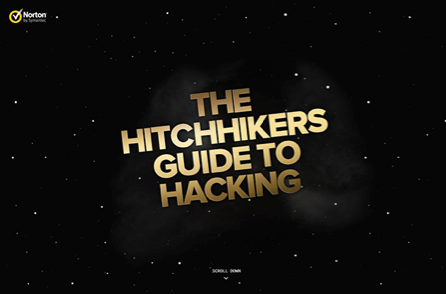Hitchhiker's Guide to Hacking – Norton
Hacking and online security in general often seems like the stuff of science fiction, but in actual fact, both represent a significant threat to any small business which has a sizeable online presence. Anyone who falls victim to hacking is likely to end up out of pocket as they count the cost of losing precious data and even money stolen from online bank accounts.
can come in a number of guises. It could be through a phishing scam where your business is sent a seemingly harmless email with an attachment that turns out to be a piece of malware, through intercepting your accounts and changing the password or by infecting your network or an individual computer through a virus, worm or Trojan.
Safeguarding
Coming from a range of backgrounds like in the movies, hackers can be stopped in their tracks, but how? Here are a few handy hints for all you SMEs worrying about keeping your tech secure:
- Install anti-malware software – this will help you to see if and when your network is being targeted by cybercriminals infecting it with malware. Be sure to perform daily scans with it to be on the safe side
- Install a firewall – a firewall will actively block any online nasties from entering your device. Make sure every employee with their own computer does this
- Encrypt all your files and data – this can be hard to do, but if you get the right software, it will scramble all that if someone else who doesn’t have permission manages to access them
- Only share files with those who need to see them – file-sharing is another way in which hackers can get to your business’s network. Doing so sparingly will close this window of hacking opportunity







